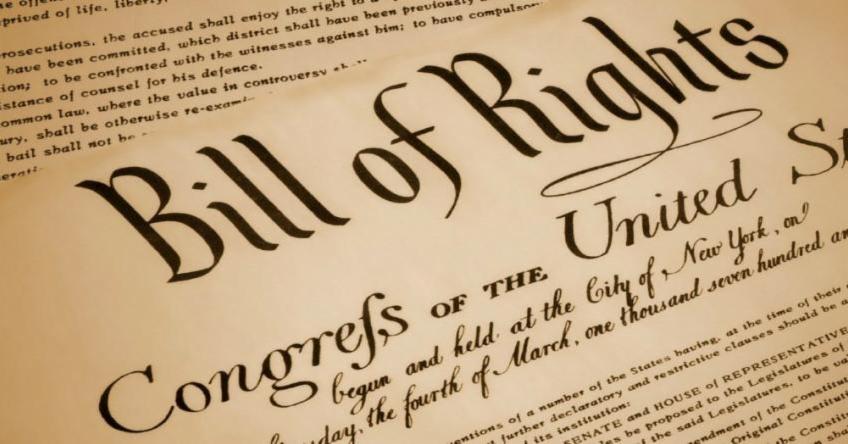This Bill Of Rights Day, Let’s Honor The Part Of The Constitution That Enshrines Our God-Given Rights
December 15, 2022

This piece was originally published by the Daily Caller. Click here to read the original article.
December 15 is National Bill of Rights Day, a day that commemorates America’s enactment of the first ten amendments to the U.S. Constitution. Unlike President’s Day or the Fourth of July, Bill of Rights Day is not a national holiday, but that should not dilute the significance of the Bill of Rights to the Republic.
The enactment of the Bill of Rights was, in many ways, a historical anomaly. In a world governed by “divine” monarchs, strongmen, and dictators, America was the first nation on earth to limit the power of the government through a bill of rights that was part of a written Constitution. During the American Revolution, the people of the states enacted such documents and then, in 1791, the people of the whole United States followed.
The Bill of Rights is built on foundational principles that we must never forget. It doesn’t give us our rights – that is a major misconception — it enshrines rights that we already have as part of the unalienable rights given by “the laws of Nature and of Nature’s God,” as the Declaration of Independence puts it. These rights are not given by government and cannot be taken away by it — rights such as religious liberty, freedom of the press, due process of law, the right to petition government, and the authority to govern our own affairs in all areas that the Constitution does not delegate to the federal government.
James Madison had those principles in mind when he introduced the Bill of Rights. He saw it as a way to educate all Americans on the basic principles of limited government and create a bulwark against the government’s enduring desire to seek power over the people — power that Madison warned “is of an encroaching nature” that “ought to be effectually restrained.” In the 231 years that have passed since the Bill of Rights’ ratification, history has proven Madison correct time and time again.
Many debates over public policy since 1791 have centered on whether the federal government has the constitutional authority to undertake a specific policy action. We see this today as the federal and state legislatures continue to debate proposals on COVID vaccine mandates, gun control, abortion, and Internet regulation. The Bill of Rights reminds our public officials – and us – that the first question about any law or government action is not “Do I like this?” but rather, “Is this constitutional?”.
Despite the truly historic nature of this document, we as a nation don’t collectively understand and appreciate it to the extent we should. The Annenberg Public Policy Center’s 2022 Civics Knowledge Survey found that only 6% could name the right to petition the government, 16% could cite the right of assembly, and 20% could recall the freedom of the press — three critical aspects of the Bill of Rights. These findings corroborate those of another [1991] poll, which found that only a third of respondents could even identify the document itself. This shows a deficiency in the education of young people that the nation must rectify.
Unfortunately, however, influential forces are instead seeking to undermine the nation’s Founding documents and its institutions instead. The 1619 Project, for instance, argues that our nation was founded not upon the ideas of liberty but the ideals of slavery and oppression. Too many young people are coming to accept this misleading account of America’s founding, which is corrupting their view of the Bill of Rights and America’s founding ideals more generally.
The long-term implications of turning a blind eye to the truth about America could prove devastating. If future generations of Americans believe their country is an inherently evil nation founded on the ideals of oppression, what kind of citizens will they become as adults? If they do not understand the importance of the Bill of Rights, how can we expect them to defend these rights in the years to come?
The solution to this growing concern is not another ideologically warped program or textbook, but to make reading, analyzing, and discussing the Bill of Rights and the other core documents that have shaped our Republic the centerpiece of the education our children and grandchildren receive. That’s what the Ashbrook Center does through our programs for teachers and students all across the country. It’s our way of honoring the Bill of Rights every day, and keeping alive the great experiment in self-government that we have inherited from our Founders.
Dr. Jeffrey Sikkenga is the Executive Director of the Ashbrook Center, an independent academic center that seeks to educate Americans on the history and principles of their country through the study of primary-source documents.

